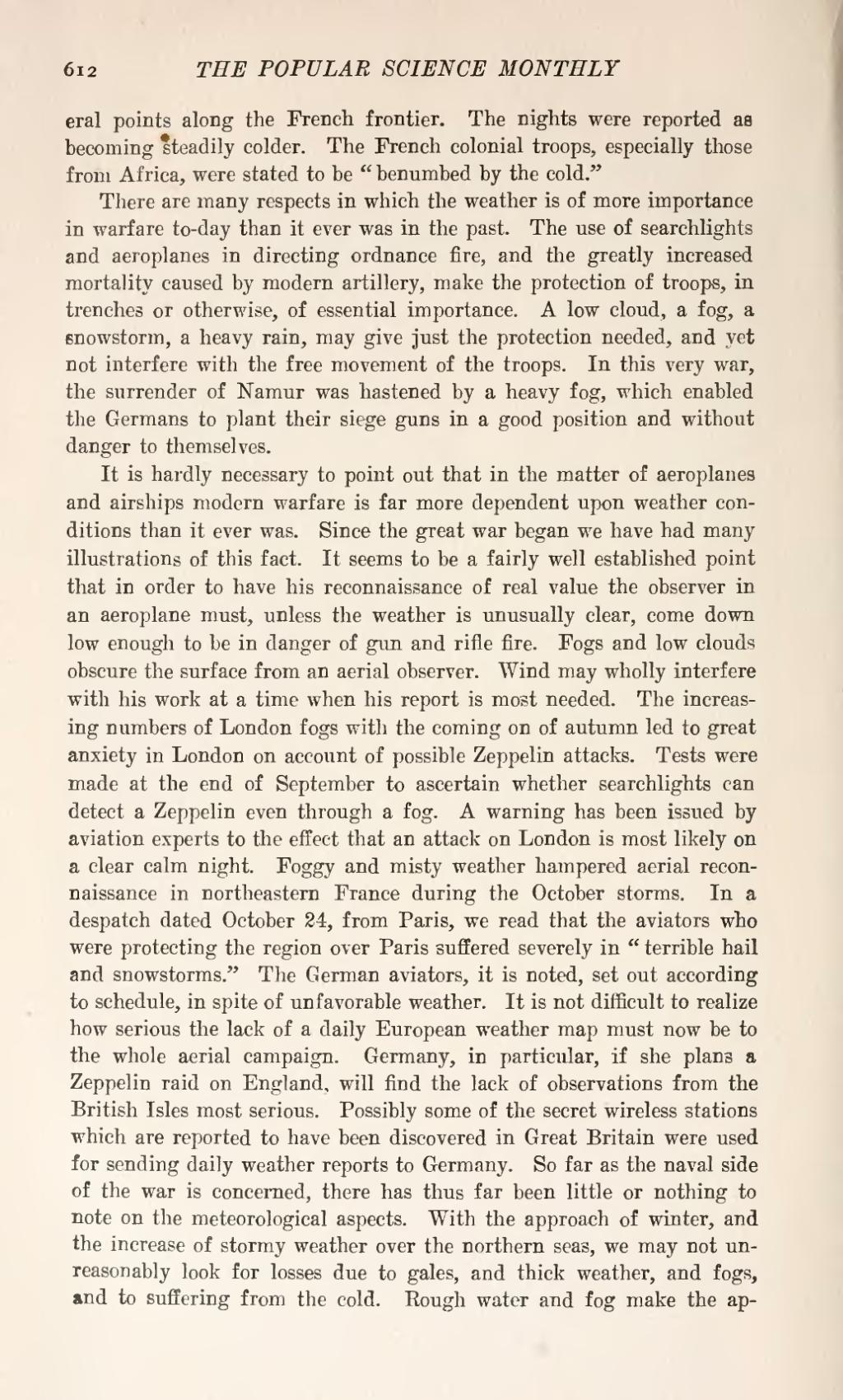eral points along the French frontier. The nights were reported as becoming steadily colder. The French colonial troops, especially those from Africa, were stated to be "benumbed by the cold."
There are many respects in which the weather is of more importance in warfare to-day than it ever was in the past. The use of searchlights and aeroplanes in directing ordnance fire, and the greatly increased mortality caused by modern artillery, make the protection of troops, in trenches or otherwise, of essential importance. A low cloud, a fog, a snowstorm, a heavy rain, may give just the protection needed, and yet not interfere with the free movement of the troops. In this very war, the surrender of Namur was hastened by a heavy fog, which enabled the Germans to plant their siege guns in a good position and without danger to themselves.
It is hardly necessary to point out that in the matter of aeroplanes and airships modern warfare is far more dependent upon weather conditions than it ever was. Since the great war began we have had many illustrations of this fact. It seems to be a fairly well established point that in order to have his reconnaissance of real value the observer in an aeroplane must, unless the weather is unusually clear, come down low enough to be in danger of gun and rifle fire. Fogs and low clouds obscure the surface from an aerial observer. Wind may wholly interfere with his work at a time when his report is most needed. The increasing numbers of London fogs with the coming on of autumn led to great anxiety in London on account of possible Zeppelin attacks. Tests were made at the end of September to ascertain whether searchlights can detect a Zeppelin even through a fog. A warning has been issued by aviation experts to the effect that an attack on London is most likely on a clear calm night. Foggy and misty weather hampered aerial reconnaissance in northeastern France during the October storms. In a despatch dated October 24, from Paris, we read that the aviators who were protecting the region over Paris suffered severely in "terrible hail and snowstorms." The German aviators, it is noted, set out according to schedule, in spite of unfavorable weather. It is not difficult to realize how serious the lack of a daily European weather map must now be to the whole aerial campaign. Germany, in particular, if she plans a Zeppelin raid on England, will find the lack of observations from the British Isles most serious. Possibly some of the secret wireless stations which are reported to have been discovered in Great Britain were used for sending daily weather reports to Germany. So far as the naval side of the war is concerned, there has thus far been little or nothing to note on the meteorological aspects. With the approach of winter, and the increase of stormy weather over the northern seas, we may not unreasonably look for losses due to gales, and thick weather, and fogs, and to suffering from the cold. Bough water and fog make the ap-
